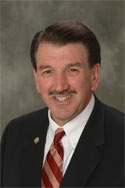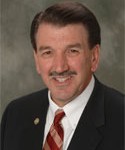An education has value. If genuine, it has real worth. Striving to get the experience at the lowest cost may prove wasteful and disheartening if it does not “perform” as anticipated.
“It’s unwise to pay too much, but it’s worse to pay too little. When you pay too much, you lose a little money – that’s all. When you pay too little, you sometimes lose everything, because the thing you bought was incapable of doing the thing it was bought to do.”
— John Ruskin —
______________________________________________________________
By Walter V. Wendler
Low costs are heralded as the advantage of online education. Massively Open Online Courses, MOOC’s, epitomize everything that’s supposed to be good about online education: cheap — they are free — and the best ones are masterfully produced, with leading academics and world experts in some cases; open to all who come calling, whenever they come calling; no admission standards, just pass the tests. Maybe this is the egalitarian elixir to elitism in higher education?
Carl Straumsheim on an Inside Higher Ed post last week confirms the suspicions regarding MOOC’s following studies funded by the Bill and Melinda Gates Foundation. Effectiveness is suspect. Researchers found, “… that user engagement falls off dramatically especially after the first one to two weeks of the course…” and less than 10% ever complete these free courses.
In addition, while the courses are free, production costs may be high, in some cases hundreds of thousands of dollars. Community colleges traditionally cater to the needs of students with low ability to pay, but they can’t compete with big money private or state flagships that bankroll upfront production costs for seductive presentations or high priced experts. Why bother anyway… that part of the equation is not working.
Online courses are used by some universities as a cash cow to keep onsite offerings up and running in difficult times. A noble cause to be sure, but there is an educational rub and the cat is out of the bag.
To create a good return on the work of a teacher, leaders and handlers may produce the course but use it repeatedly for online distribution, for full cost to student, with someone other than the “real” teacher. It is disingenuous, deceitful in the worst cases. It is not the means or the message; it’s the teacher interaction that is absent.
Cheap instruction, without teachers, is cheap.
In the School of Architecture at SIU, an online master’s degree provides access to working interns or architects who desire an accredited graduate degree. The interest level was significantly higher than anticipated. In order to make sure the online offering was first rate, some of the most capable teachers were enlisted. Careful academic management builds and nurtures the program. A few insights have been gleaned.
Good onsite teachers make good online teachers. Someone not invested in the material, but only in delivering it, falls short. No surrogates. No substitutes. The faculty member must be the teacher.
Teaching online requires twice the effort to get effective results. Students in the SIU program get personal undivided attention in emails and internet interaction. And nobody hides. There is a durable record of every utterance or sentence by anyone. Different students may ask the same questions to which faculty members must repeatedly respond. This apparent inefficiency also creates nearly pitch-perfect focus between teacher and learner, the essence of good teaching in any setting. Time-consuming beyond expectations, but early indications from students show high appreciation for the concentration of instruction.
Online economy exists in relatively flexible, high intensity, interaction. The costs to students nearly parallel onsite instruction. Students see economy in the process because they have jobs, families, and other challenges that would make residential study difficult or impossible.
F2F (face to face) meetings in St. Louis, two hours from the Carbondale campus, but very close to the airport for students from diverse parts of the nation provide easy access. Hosted at Rankin Technical College, the assemblies offer a positive F2F experience. This hybrid approach provides focused, distraction-free interaction with teachers and engaged peers one weekend per month: an intellectual campout.
Online programs make a great deal of sense. They do not reduce costs significantly, but they increase access if the quality and standards of onsite instruction are maintained and do not use surrogates.
Our universities should focus on primary mission. Interaction between teacher and students in an online environment, coupled with face-to-face meetings, holds promise as a legitimate educational experience.
But buyers beware of look-a-likes.




